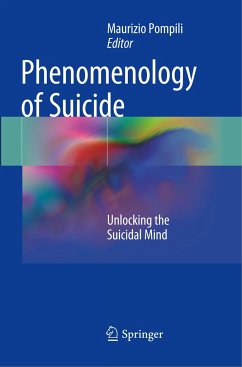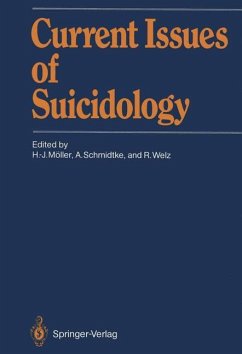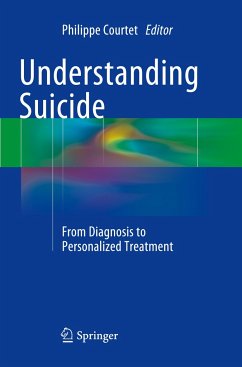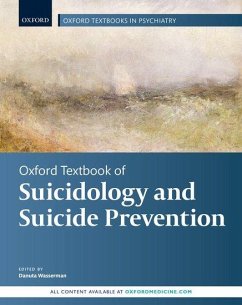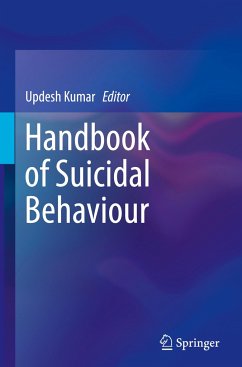
Suicide Risk Assessment and Prevention
Versandkostenfrei!
Versandfertig in 1-2 Wochen
521,99 €
inkl. MwSt.

PAYBACK Punkte
261 °P sammeln!
This book explores suicide prevention perspectives from around the world, considering both professionals¿ points of view as well as first-person accounts from suicidal individuals. Scholars around the globe have puzzled over what makes a person suicidal and what is in the minds of those individuals who die by suicide. Most often the focus is not on the motives for suicide, nor on the phenomenology of this act, but on what is found from small cohorts of suicidal individuals. This book offers a tentative synthesis of a complex phenomenon, and sheds some light on models of suicide that are less ...
This book explores suicide prevention perspectives from around the world, considering both professionals¿ points of view as well as first-person accounts from suicidal individuals. Scholars around the globe have puzzled over what makes a person suicidal and what is in the minds of those individuals who die by suicide. Most often the focus is not on the motives for suicide, nor on the phenomenology of this act, but on what is found from small cohorts of suicidal individuals. This book offers a tentative synthesis of a complex phenomenon, and sheds some light on models of suicide that are less frequently encountered in the literature. Written by international experts, it makes a valuable contribution to the field of suicidology that appeals to a wide readership, from mental health professionals to researchers in suicidology and students.



